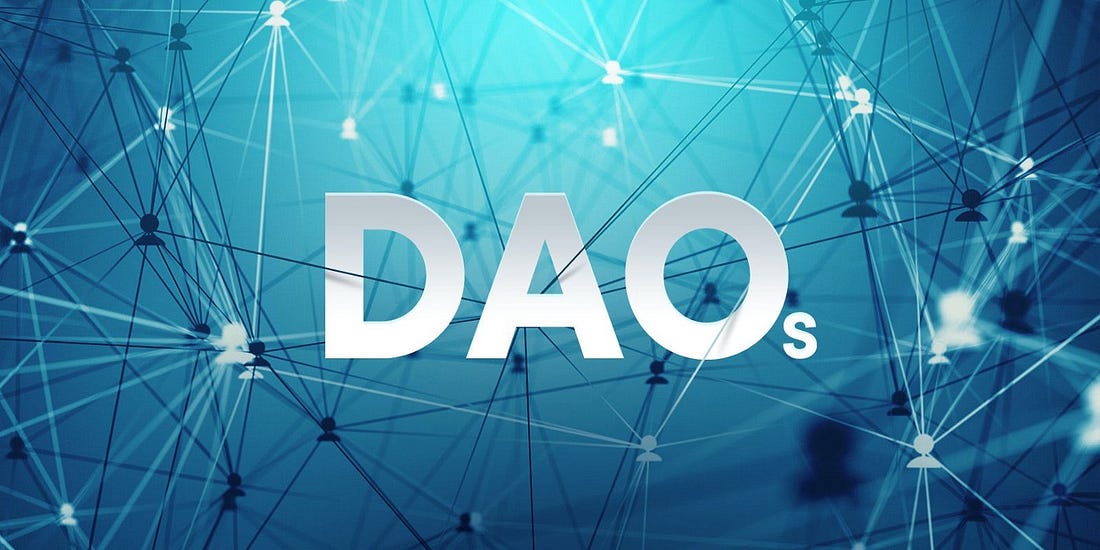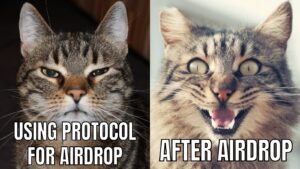
DAO in crypto was short-lived, not just the concept. Sounds funny when some of them control almost a billion-dollar market capitalization. Your best knowledge of a DAO might be a famous airdrop where users claimed thousands of dollars for free. You might have benefitted from one of these if you’re fortunate enough.
One good thing about (some of) these airdrops is that they surely get the attention of the greater part of the cryptocurrency community who barely knew about these projects and even the world outside it. Exchanges are also quick to list the ‘DAO’ tokens and enable trading as soon as possible. The normal listing process can be forgotten. Who cares when there are surely some juicy trading fees to be made? Beneficiaries are also quick to hit the market and cash in on some free cash.
You probably don’t care about it but, Decentralized Autonomous Organizations (DAOs) are a systemic design structured to ensure general and undiluted participation of the members of the organization. In cryptocurrency communities, rights to this participation are tokenized and every token holder is considered a member of the DAO. Through voting portals, members of the DAO can vote on proposals and submit their improvement suggestions to be voted on by the rest of the holders.
The idea of DAO has long existed, many older projects have implemented this before it became so popular in the past few years. Many projects have launched tokens whose primary use is to vote on proposals. A brilliant move, in my opinion. Unfortunately, this hasn’t really worked so well.
Buzzwords and media hype apart, contemporary DAOs haven’t really made much progress and are pretty much replicas of the older examples. In contrast, these older DAOs worked better…and are worth way less.

DAOs are designed to promote general participation and optimize the efficiency of communal decisions. To achieve this, as many members as possible are required to partake in the voting process. Abstaining is also an option; this should be explained in case.
Tokenizing this participation simplifies the verification and collation process. Holders of these tokens are confirmed automatically by smart contracts. Manipulating smart contract tokens is impossible. the number of tokens in circulation can also be verified via the blockchain. These ensure that every vote is valid. The amount of tokens held by each member is a representation of their stake in the DAO and determines the extent to which they influence the community’s decision.
This works well…on paper. But, do these projects really achieve their goal of a Decentralized Autonomous Organization when their tokens are quickly traded on exchanges by the beneficiaries of their airdrop? The new owners couldn’t care less about how a DAO works and if there exists a DAO at all.
These tokens are no different from every other smart contract token filling up the whole space. Only one principal achievement; marketing. These ‘DAOs’ quickly gain thousands of followers as their airdrop beneficiaries scamper to find out who their new ‘Santa’ is. Influencers who seemingly claimed a ton of the drop picks up their devices to tweet the hell out of these benevolent projects.

Airdropping free tokens to old community members is the right thing to do. Older participants are regarded as the most loyal and have stayed with the project for most of its existence. If anyone should get a free stake in the government, it should be this set of people. Dumping these DAO tokens into the market is a failure on the part of the community and not the project founders.
Project founders aren’t exempted from the blames anyways. Albeit decentralizing the community, DAO project teams still execute important proposals without the consent of the community. Many argue that a complete DAO is ‘dumb’ and unsustainable. You’d agree too. It falls through at some point. The majority isn’t always right, this happens more often than not. In cases like this, project founders face the hard decision of going against the community or not consulting them properly.
When the hype dies, the ‘quick buyers’ can only count their losses as they wait for the DAO to go live. Nope, they wait for the price to go up…again. DAOs are currently hype, just like many other cryptocurrency concepts. The best uses might emerge when the hype dies or when solutions are developed to retain community interest and understand how best to handle negative decisions by the community.
There is no ads to display, Please add some




